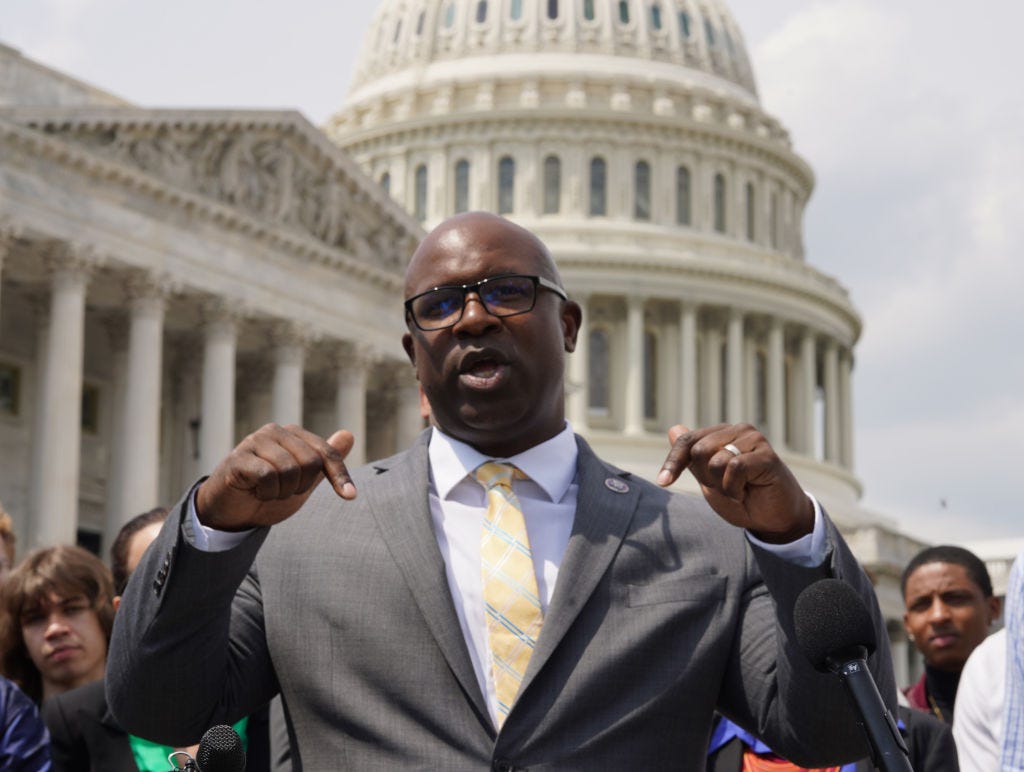Eric Adams' Political Nightmare
He doesn't live in New York City (yet)
Lately, Mayor Eric Adams has been angry. He complains, virtually every week, about the media coverage of his City Hall, which has bled top talent, weakened core government functions, and repeatedly courted scandal. These complaints are almost entirely in bad faith; there has been nothing unusual, or overly adversarial, about how the city’s newspapers, broadcasters, radio stations, and online outlets have chronicled Adams. Every mayor gets tough enough press coverage—ask Bill de Blasio or Michael Bloomberg—and most of them are usually less lucky than Adams, who has managed to have the New York Post, a ferocious right-wing tabloid, as an ally since he is hostile to their enemies on the left. Adams, too, has enjoyed gauzy coverage from local broadcast television, where his tough-on-crime rhetoric is often validated. He has had few, if any, policy victories to celebrate, especially compared to de Blasio and Bloomberg, who were either tangibly expanding the social safety net (universal pre-K) or radically reimagining the city’s streetscape and parks.
Adams does have something going for him: crime, broadly, has declined from last year. Shootings and murders are down. Adams’ entire mayoral campaign was predicated on controlling crime—as usual, falling crime in New York has mirrored a national trend, and individual mayors can’t single-handedly drive these numbers down—and he could potentially tout a tangible turnaround in 2025, when he campaigns for re-election. The trouble, for now at least, is few New Yorkers seem to feel safe, at least according to available polling. Adams, as I’ve written before, is beginning to die by the sword he lived by for so long. As a candidate, it’s very easy to rail against crime and say your city, against all evidence, is more unsafe than it’s ever been. It’s another thing to be the actual executive, tasked with convincing voters the streets haven’t descended into anarchy.
Soon, the many activists, interest groups, and ordinary voters who are weary of Adams’ act will have decide what they want to do about the 2025 Democratic primary. Vote for someone else? Who? Incumbent mayors typically don’t lose. Adams is a strong fundraiser who can probably count on super PAC help from the city’s richest developers and financiers, assuming someone Bloomberg-like doesn’t emerge to challenge Adams from the right—or a soft technocratic left. Adams has handed out generous contracts to the city’s unions, so it’s unlikely the most influential labor unions are going to turn on him. He’s a product of the Black working-class and can count on support from the heavily Black and Latino neighborhoods of the outer boroughs—at least for now. Polling on his actual administration has been sparse, but it seems to be improving. Considering how little Adams cares about the mechanics of governing, life isn’t so bad.
Still, storm clouds gather. Adams is not going to coast in the same way de Blasio did when he sought re-election in 2017. In 2013, de Blasio had won a much more commanding primary victory, and he retained enough support from a mix of liberal white and Black voters to ward off serious challengers. Scott Stringer, the former city comptroller, strongly considered a run but passed—he would have done well enough against de Blasio, but didn’t have a path victory. In 2014 and 2015, de Blasio had quickly established a new, popular pre-K program in the five boroughs, and this was the centerpiece of his re-election bid.
There are several different kinds of candidates who can give Adams trouble. The most obvious would be a reliable liberal or progressive with genuine technocratic bona fides; this unicorn candidate should also not seem too soft on crime, since voters care greatly about it still. Kathryn Garcia, who nearly won in 2021 and now works for the state government, could be a tough opponent for Adams. Brad Lander, the city comptroller, checks the liberal and technocrat boxes, but his hypothetical campaign against Adams would be racially fraught. Lander is a white, relatively wealthy man from Park Slope, and he does not want Adams to call him a racist. Adams will, absolutely, call Lander a racist. He calls many different people racist. This is what he does.
The guilty white liberal cowers in fear of Adams—and Adams himself knows it. But a nonwhite candidate can’t be readily called a racist. Even better, for Adams’ critics, would be a Black opponent. Then, such attacks are neutralized.
Enter Congressman Jamaal Bowman.



